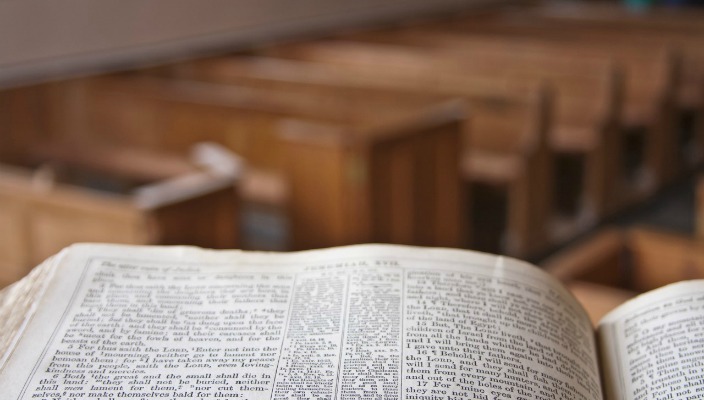
The Johnson Amendment, a national law restricting political activity in churches, synagogues, and other non-profit organizations, is making news as some preachers are using the pulpit to instruct their faithful how to vote. These clergy see the Johnson Amendment as a muzzle. They believe freedom of religion and freedom of speech mean the freedom to take worship time to express partisan political views.
To be sure, we generally expect our clergy to discuss religious perspectives about health care, hunger, the environment, Israel, and more. After all, the Torah tells us to look after our health, care for the poor, be stewards of the earth, and the like. But when it comes to partisan matters, the Johnson Amendment says we are not to encourage a vote for a political party or person from the pulpit. As a rabbi, I’d like to look at the rules governing our congregations and the political process.
Non-profit organizations, including synagogues, churches, museums, hospitals, and the like pay no tax on income. What’s more, private donations to churches or mosques are generally tax-deductible for donors, giving them a few extra dollars come April 15.
Houses of worship must follow several rules to qualify for these tax benefits, including, but not limited to these:
- Net earnings may not inure to the benefit of any private individual or shareholder. In other words, at the end of the fiscal year, synagogue boards may not vote themselves unspent funds.
- No substantial part of synagogue activity may be attempting to influence legislation. The important word here is “substantial.” A synagogue can do some lobbying for health care or climate change, or go to city hall to request a street light at the corner.
- The organization may not intervene in political campaigns. To the point of the Johnson Amendment, this rule means no partisan or candidate endorsements may be made from the pulpit, in the bulletin, or the like. Of course, religious leaders are free to endorse in a personal capacity, but, when it comes to a newsletter article, keep away. A violation can cost a synagogue its tax-exempt status, meaning donations stop being tax-deductible and the organization’s income will be taxed.
Now we get to recent events, with some clergy feeling that their right to free speech means they can stand at the pulpit and tell people how to vote. First, clergy can speak freely about candidates, as freely as anyone else – on the sidewalk or in a park, but not from the pulpit or in a synagogue email blast.
Second, with clergy apparently making inappropriate endorsements, why doesn’t the Internal Revenue Service investigate and enforce the rules? I am told that IRS doesn’t want to get in the business of hearing out sermons and deciding whether a preacher broke the law; it’s a delicate and burdensome task. But don’t take what appears to be indifference as a green light – bad things happen when partisan politics make it to the pulpit.
Reform synagogues, like many houses of worship across the religious spectrum, are diverse political communities; clergy discuss elections at their peril. Look at one glaring recent example.
As the 2004 presidential election approached, Rev. Chan Chandler, pastor of an East Waynesville, North Carolina, church preached this:
The question then comes in the Baptist Church, “How do I vote?” Let me just say this right now, if you vote for John Kerry this year you need to repent or resign [from this church] … And I know I may get in trouble for saying that, but just pour it on.
Oh, there was plenty of trouble, and national media poured it on with stories of members resigning amid claims of being driven out, allegations of profanity at church meetings, demands that the church’s tax exempt status be revoked, and threats of lawsuits. Rev. Chandler – suddenly finding himself at the center of a house of worship in turmoil and a national debate on the relationship between religion and government – had to leave his church. Many of his faithful believed God was on their side, but their side wasn’t the same as their pastor’s.
It’s one thing for a religious leader to talk politics in private, among friends and the like. And there is nothing wrong when a religious leader stands at a pulpit and says, “I think such-and-such about immigration because that is what our faith teaches.” But partisan pulpit endorsements are not only illegal, they’re unwise, as Rev. Chandler learned the hard way. His endorsement ruined his church.
So, bring your Bible into the voting booth and pray for spiritual guidance in there as you see fit. Ask God to make sure your candidate wins. But, with the sanctity and integrity of our houses of worship at stake, our synagogues and their leaders must respect the wisdom of the Johnson Amendment.
Have something to say about this post? Join the conversation in The Tent, the social network for congregational leaders of the Reform Movement. You can also tweet us or tell us how you feel on Facebook.
Related Posts

Summer Resources for Year-Round Board Success

Congregational Consulting Cohorts: Addressing Challenges Together
